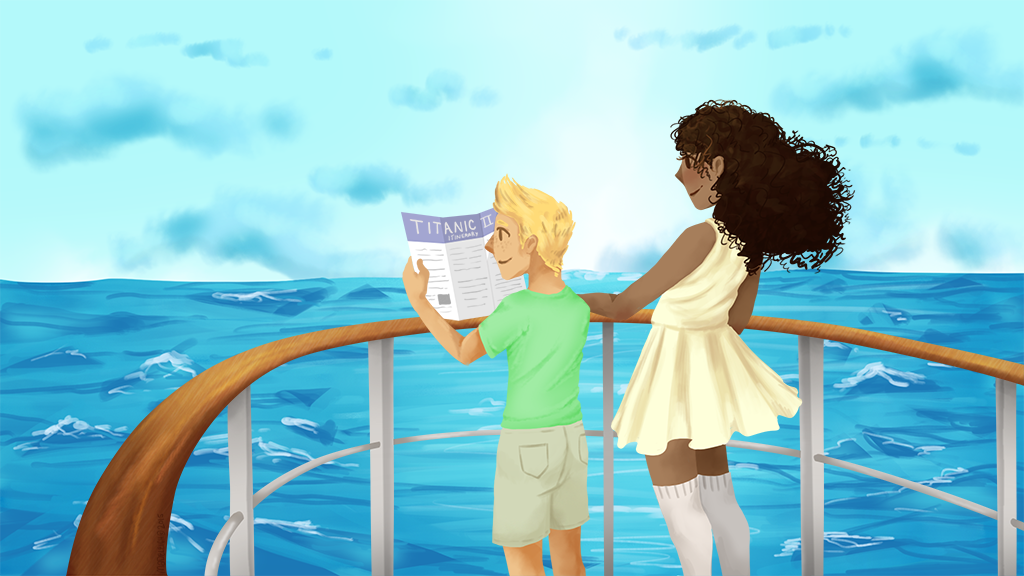106 years after the tragedy of the RMS Titanic, Titanic II is planned to set sail in 2018. But many are wondering whether an exact replica of the RMS Titanic is a good idea.
Titanic II is planned to be as close to an exact replica of Titanic as it can get without breaking fire code. Of course, there will be some differences between the two ocean liners.
According to the ship's informational website, Titanic II will have an extra deck full of lifeboats to make up for those missing in the original RMS Titanic. Titanic II will be a fully functioning replica of Titanic, but will run on diesel and electricity instead of coal boilers and a steam engine, which is far more efficient. Titanic II will also have new digital radar — a huge upgrade considering radar and sonar were not invented at the time of the original Titanic.
On top of its digital upgrades, Titanic II will be welded instead of riveted and be a little wider and a little heaver for stability.
According to Blue Star Line, the project's supporting company, Titanic II will have First, Second and Third Class passengers and accommodations just as the original ship did in 1912. As was common in the Titanic's original heyday, each class is planned to be separated from the rooms down to dining and the activities, giving passengers a full experience of the times.
Titanic II is being built in Jiangsu, China and will make its maiden voyage from there to Dubai, unlike the Titanic's tragic maiden voyage path. The Titanic II will eventually take the same route as Titanic's maiden voyage from Southampton, England to New York City.
The major question surrounding Titanic II is about how ethical a replica of Titanic actually is.
While many see Titanic II as an opportunity to go back in time and to ride a famous ship that is highly romanticized by both the media as a love story (namely "Titanic" the movie) and as a historical tragedy. However, other people call plans to remake the Titanic "insensitive" toward a tragic historical event and those who lost their lives on Titanic.
One of the main problems was summarized by Jean Pietrowski, a 4th-year museum studies major currently writing her thesis on dark tourism.
"Without the tragedy it would have still been important to naval technology, but I don't think it would have been as big as it is now," she said. Without the tragedy of the Titanic, we wouldn't be making a replica Titanic, so the argument surrounds the idea that Titanic II is ignoring Titanic's tragic past by making it a tourist attraction.
Titanic II is not the first historic tragedy to be romanticized as an attraction. The Lizzie Borden Bread & Breakfast and the Dungeons of Europe are perfect examples of that since they are attempting to portray history by turning a place of tragedy into a fun place to go. Pietrowski also brought up the Mamula Concentration Camp that is being turned into a resort.
"It will have a museum or memorial room in it, but that does not make up for the fact that many people died there during WWII. And it's a large controversy right now in that part of Europe," she said. This argument also stands salient against Titanic II.
On the other hand, people are always interested in seeing a memorial or working replica of many events in history.
"A lot of people like to express disgust, but also wish to see them at the same time," Pietrowski explained. "A part of them will go and try to remember what happened, while wanting to have fun."
A part of them will go and try to remember what happened, while wanting to have fun.








